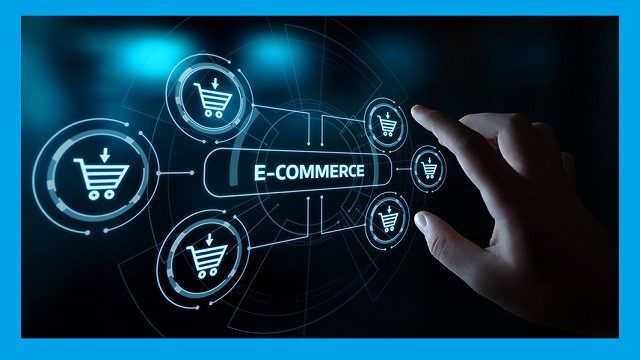E-commerce has reshaped consumer habits, with millions preferring online shopping for convenience and variety. Businesses of all sizes, from startups to established enterprises, leverage e-commerce platforms to drive growth, expand customer bases, and streamline operations. However, adopting an e-commerce model should align with your business goals, industry demands, and available resources.
E-commerce has transformed businesses’ operations by providing a platform to reach customers anytime, anywhere. But is e-commerce the right choice for your business? Let’s explore the key aspects of venturing into the digital marketplace and uncover how it could align with your goals.
Requirements of an E-commerce Business
To succeed in the e-commerce world, it’s crucial to have the right tools, strategies, and resources. Here are the essentials to prepare:
1. A Well-defined Business Model
When defining your business approach, consider your target audience and product offerings to select the right model: business-to-consumer (B2C), business-to-business (B2B), or direct-to-consumer (D2C). Next, determine how to generate revenue through options like product sales, subscriptions, or specialized services that cater to customer needs.
2. Website Development
A well-designed, user-friendly website is crucial. It serves as your virtual storefront and must provide a smooth shopping experience. Select a reliable platform like Shopify, WooCommerce, Magento, or a custom-built solution personalized to your needs. Your choice should factor in scalability, ease of use, and integration capabilities.
3. Inventory and Supply Chain Management
Adequate inventory and product management systems are crucial for success. Proper inventory management guarantees timely deliveries and provides a seamless customer experience. Implementing a system that tracks stock levels, manages product listings, and updates availability in real time is essential.
High-quality images, detailed descriptions, and precise specifications can help convert visitors into customers. Collaborating with reliable suppliers and establishing a strong supply chain is also essential.
4. Payment Gateways
Reliable payment processing systems are essential for businesses. Offering a variety of payment methods, such as credit cards, PayPal, Stripe, and digital wallets, allows you to cater to customer preferences. By integrating these secure payment gateways, you secure a smooth and efficient checkout experience, promoting trust and encouraging repeat business.
5. Marketing and SEO Strategy
A comprehensive digital marketing plan to drive traffic and sales. Optimize your site for search engines and produce valuable content to attract organic traffic. Platforms like Facebook, Instagram, and Twitter to engage with your audience. Use email campaigns to nurture leads and build customer loyalty.
As Online visibility is crucial. Invest in SEO, email, social media, and content marketing to attract and retain customers.
6. Customer Support System
A responsive customer service system builds trust and guarantees long-term loyalty—high-quality customer support to resolve issues and improve the shopping experience.
7. Legal and Security Compliance
To succeed in the competitive e-commerce world, it’s essential to prioritize compliance with regulations such as the General Data Protection Regulation (GDPR) to guarantee complete data protection for your customers. With SSL certifications for secure transactions, you will protect sensitive information and foster trust and loyalty among your clientele.
8. Analytics Tools
Tools like Google Analytics, Hotjar, or built-in platform metrics to gain insights into your performance. By tracking sales and user interactions, you can improve user experience and make informed, data-driven decisions that boost sales and foster customer loyalty. Investing in these resources is crucial for optimizing your strategies and staying competitive.

Why an E-commerce Website is Important for your Business?
An ecommerce website can significantly boost your business in several ways:
1. Expands Market Reach
An e-commerce website enables you to reach a global audience, overcoming the limitations of a physical store. You can access local, national, and international markets without the high overhead costs associated with brick-and-mortar locations, allowing for efficient and cost-effective business expansion.
2. 24/7 Availability
Customers can shop anytime, anywhere, thanks to the round-the-clock availability of e-commerce websites. This unmatched convenience allows them to browse a wide range of products at their leisure, whether at home or on the go. By removing traditional store hours, businesses can maximize sales opportunities and cater to shoppers’ needs throughout the day and night.
3. Cost Efficiency
Running an eCommerce store can be much more cost-effective than a traditional brick-and-mortar setup. By eliminating the need for a physical storefront, businesses can avoid high expenses like rent and utilities, allowing for a more efficient allocation of resources and greater focus on essential business operations.
4. Enhanced Customer Insights
E-commerce platforms empower businesses with advanced tools to meticulously track customer behavior, preferences, and purchasing patterns. Harnessing this insightful data allows for highly personalized marketing strategies that resonate with individual shoppers. As a result, companies can make informed decisions that boost engagement and drive sales, ultimately enhancing their competitive edge in today’s market.
5. Scalability
An ecommerce business can scale more easily than a physical store. Whether launching a new product line or expanding your catalog, You can add new products, expand into new markets, and handle increased traffic with relative ease. e-commerce websites allow smooth scalability without significant investment.
6. Improved Customer Experience
Ecommerce platforms provide valuable data on customer behavior, preferences, and purchasing patterns. This information can inform your marketing strategies and product offerings. With features like easy navigation, personalized recommendations, and streamlined checkout, e-commerce platforms improve the overall shopping experience.
7. Convenience and Accessibility
Customers can shop anytime and from anywhere, providing remarkable convenience. This 24/7 accessibility can lead to increased sales volumes, allowing businesses to reach a wider audience eager to shop on their own terms. Embrace this opportunity to boost customer satisfaction and grow your sales.
8. Personalized Shopping Experience
Data analytics lets you provide personalized product recommendations based on customer preferences, improving their shopping experience. Targeted marketing strategies guarantee your ads reach the right audience at the right time, increasing engagement and sales.
Creating customized shopping experiences builds customer satisfaction and loyalty, driving long-term growth for your business.
9. Competitive Advantage
Having a strong online presence is crucial for maintaining a competitive edge in the market. Many consumers prefer businesses that offer online shopping, as it provides convenience and accessibility. Without an online shopping option, you risk losing customers to competitors who do. Embracing e-commerce is essential for meeting consumer needs and staying relevant in the digital age.
10. Brand Visibility and Credibility
A professionally designed e-commerce website is essential for establishing your brand’s credibility and significantly boosting its visibility across search engines and social media platforms. Combining an attractive design with seamless functionality, not only captivates visitors but also builds trust, encouraging conversions. Invest in a website that enhances your brand’s reputation and stands out in a crowded market, ultimately driving growth and success for your business.
Final thoughts
E-commerce opens up opportunities for businesses to succeed in a digital-first world. Deciding to venture into ecommerce depends on various factors, including your business goals, target audience, and market conditions. It’s essential to weigh the benefits against the challenges to determine if ecommerce aligns with your business strategy. Whether you’re a small business owner or an established brand, e-commerce has the potential to transform your operations and elevate your growth. Start your journey today and unlock endless possibilities.
Understanding the requirements and advantages can help you make an informed decision that will position your business for success in the digital landscape.














